Weill Cornell Medicine Celebrates Two Landmark Anniversaries
Notable
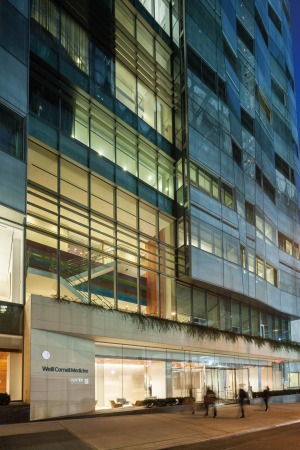
Weill Cornell Medicine opened the Belfer Research Building, pictured here, in 2014. The 18-story, $650 million building was made possible through numerous donors and ushered in a new era of research at the institution.
Weill Cornell Medicine is celebrating more than a century of excellence in medical education, scientific discovery and patient care, commemorating 125 years since its founding. What began on April 14, 1898, as Cornell University Medical College in four temporary classrooms on the grounds of Bellevue Hospital is today a state-of-the-art academic medical center located on the Upper East Side of New York City with reach across six continents.
The institution is also celebrating the 25th anniversary of the renaming of its medical and graduate schools on April 30, 1998, in deep appreciation for the exemplary leadership of longstanding supporters Sanford I. Weill and his wife, Joan Weill. The Weill family’s $100 million gift in 1998 ushered in a new era at Weill Cornell Medicine.
The institution has changed dramatically over the years, evolving alongside its city and country. In that time, it has pioneered the Pap smear to detect cervical cancer, produced accomplished alumni including former NIAID Director Dr. Anthony Fauci (M.D. ’66) and former NASA astronaut Dr. Mae Jemison (M.D. ’81), and expanded its clinical services across the five boroughs and its education globally, among numerous achievements, while remaining anchored in the central value of social justice.
“The Weill Cornell Medicine story is one of ambition, compassion and resilience,” says Dr. Francis Lee, interim dean of Weill Cornell Medicine and interim provost for medical affairs of Cornell University. “While we can boast of our accomplishments in education, the lab and the clinic, we are equally proud of our dedication to innovation, not just technological, but in how we pursue diversity and inclusivity across our core missions to care, discover and teach.”
Weill Cornell Medicine’s progressive, humanistic values have changed medicine since its earliest days. The institution was among the first medical colleges to admit women. As a result of the civil rights movement, Weill Cornell Medicine created the Travelers Summer Research Fellowship program to increase the pipeline of physicians historically underrepresented in medicine — an initiative that has trained more than 1,200 premedical students and endures today. More recently, it debuted a scholarship program that drastically reduces medical education debt for all students who qualify for financial aid, expanding the opportunity to become a doctor to future physicians who will reflect the diversity of the patients they will treat.
With another eye to its societal obligations, Weill Cornell Medicine formed overseas military hospital units during the two world wars — and was at the epicenter of our modern-day crisis, the COVID-19 pandemic, when it rapidly reassigned its doctors to respond to the emergency at the height of New York’s epidemic.
As it remained grounded in the needs of its community, scientific discovery underpinned Weill Cornell Medicine’s blossoming into a robust academic medical center on the Upper East Side, built in 1932 in collaboration with then-New York Hospital — today its partner NewYork-Presbyterian. Funding from the federal government from the time Weill Cornell Medicine paired up with the hospital in the 1930s through the ’60s drove the expansion of the institution’s research focus. That support continues, with the National Institutes of Health awarding 1,135 grants to Weill Cornell Medicine researchers in 2021-2022 alone for biomedical research. Investigators at Weill Cornell Graduate School of Medical Sciences, and collaboration with neighbors Memorial Sloan Kettering Cancer Center and The Rockefeller University, plus parent university Cornell University and nearby Cornell Tech, are the bedrock of the institution’s scientific mission.
This focus on advancement occurs on an intellectually vibrant campus that includes two modern buildings dedicated to research and patient care, and a state-of-the-art student residence currently under construction. Today, nearly 1,900 physicians see more than 3 million patients annually at 165 sites and five hospitals throughout the greater New York area. These doctors conducted more than 950 clinical trials in 2021-22, offering patients new treatment options.
Today, more than 2,500 faculty are training the world’s future health-care leaders across an impressive range of specialties, including 1,650 enrolled students. A modern medical education curriculum, unveiled in 2014, integrates the scientific basis of disease with early exposure to clinical care. Weill Cornell Graduate School of Medical Sciences boasts more than a dozen doctoral and graduate programs to nurture the next generation of leading scientific minds. And the Tri-Institutional M.D-Ph.D. Program has educated successful physician-scientists for 50 years.
Many of these recent accomplishments would not have been possible without Mr. Weill’s two decades of leadership as chair of the Weill Cornell Board of Fellows from 1994 to 2014, along with Joan’s and Sandy’s and the Weill family’s gifts to Weill Cornell Medicine, which total more than $700 million.
Mr. Weill’s leadership touched every program area, establishing the institution as an innovator in basic, clinical and translational research, and forging a new paradigm for global engagement and medical education. Under his leadership, the institution formed an affiliation with Houston Methodist in Texas, which expanded two years ago to offer two graduate programs. With Cornell University, Weill Cornell Medicine in 2002 established a medical school in Doha, Qatar, that offers a Cornell University medical degree and has educated 504 new doctors since its inception. And in 2007, Weill Cornell Medicine established a formal affiliation with Bugando Medical Centre and the Weill Bugando School of Medicine in Mwanza, Tanzania, named in recognition of the Weills’ support.
Committed to changing medicine around the world, the Weill Cornell Medicine Center for Global Health mobilizes and supports international partners to improve the health of people in resource-poor countries, such as Haiti, Tanzania and Brazil, through research, training and service. Weill Cornell Medicine’s investigators have for decades conducted translational research, focusing on understanding, diagnosing and treating infectious diseases, such as HIV/AIDS, tuberculosis and other tropical diseases.
“Disease knows no borders, and we are committed to improving health for as many people as possible at home and internationally,” Dr. Lee says. “Our laser-focused commitment to excellence in clinical care, biomedical research and education around the world will continue to serve us well as we expand and achieve new heights in the coming years.
“We are exceedingly proud to celebrate these two landmark anniversaries,” he adds. “The future of academic medicine at Weill Cornell Medicine is bright indeed.”
Summer 2023 Front to Back
-
From the Dean
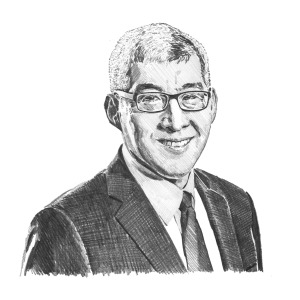
Message from the Dean
As Weill Cornell Medicine marks the 125th year since its founding, it is striking to reflect upon how our values have endured. -
Features

Window Into the Future
An ambitious research program could hold clues to improving the health of women and their children across their lifespans. -
Features

Caught on Camera
Recordings made in Dr. Simon Scheuring’s lab reveal how elusive molecules embedded in cell membranes get their jobs done — for good and ill. -
Features
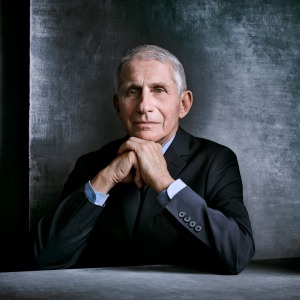
Risks and Rewards
Alumnus Dr. Anthony Fauci (M.D. ’66) joins Dr. Jay Varma in a candid conversation about the future of public health and more. -
Notable
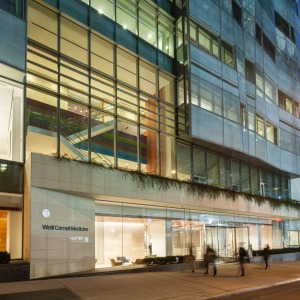
Two Landmark Anniversaries
Weill Cornell Medicine is celebrating more than a century of excellence in medical education, scientific discovery and patient care, commemorating 125 years since its founding. -
Notable
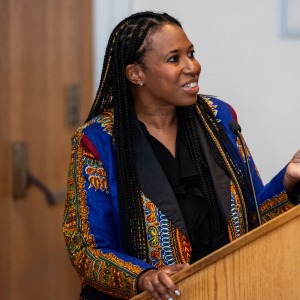
Honoring Diversity
In a celebration of Weill Cornell Medicine’s commitment to fostering diversity, equity and inclusion in academic medicine, the institution honored nearly a dozen faculty, students and staff. -
Notable

Overheard
Weill Cornell Medicine faculty members are leading the conversation about important health issues across the country and around the world. -
Notable

News Briefs
Notable faculty appointments, honors, awards and more — from around campus and beyond. -
Notable

Dateline
The Salzburg-Cornell Seminars, now part of the Open Medical Institute (OMI), celebrates 30 years of knowledge-sharing, having served more than 26,000 fellows from 130 countries. -
Grand Rounds
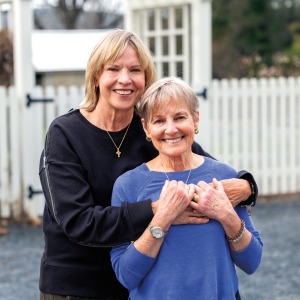
There Is Hope
How immunotherapy offered a new lease on life -
Grand Rounds
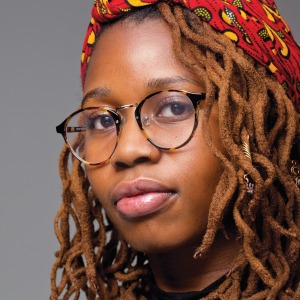
Medical School, Minus the Debt
Weill Cornell Medicine’s debt-reduction program. -
Grand Rounds

News Briefs
The latest on teaching, learning and patient-centered care. -
Discovery
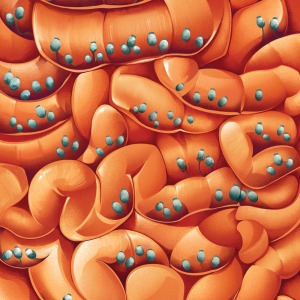
Filling a Critical Gap in the Gut
An important discovery positions fungi as a missing part of research on how the gut biome influences health. -
Discovery

New Clues to Coma Recovery
Delays in regaining consciousness may serve a purpose: protecting the brain from oxygen deprivation. -
Discovery

Findings
The latest advances in faculty research, published in the world’s leading journals. -
Alumni
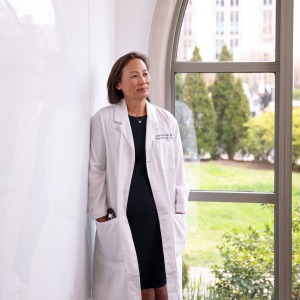
Profiles
Forging critical connections to move research from the bench to the bedside, our alumni are making an impact. -
Alumni
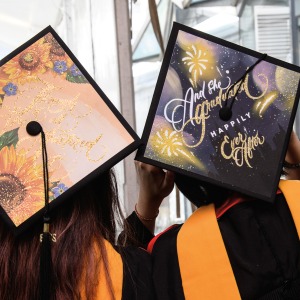
Notes
What’s new with you? Keep your classmates up to date on all your latest achievements with an Alumni Note. -
Alumni

In Memoriam
Marking the passing of our faculty and alumni. -
Alumni

Moments
Marking celebratory events in the lives of our students, including Match Day and Graduation. -
Second Opinion

Nurturing Well-Being
How can the health-care workforce recover from pandemic burnout? -
Exchange
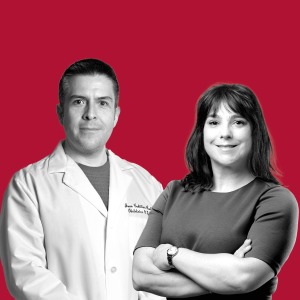
High-Risk, High-Reward
Two enterprising scientists discuss how the ecosystem for innovation at Weill Cornell Medicine provides the support entrepreneurial faculty and students need to turn their promising research into commercially viable drugs and other treatments. -
Muse
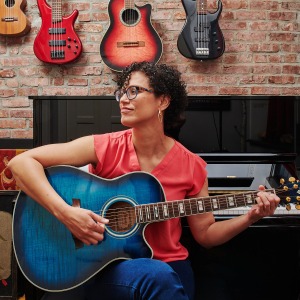
In the Flow
Dr. Navarro Millán is a rheumatologist, clinical investigator and multi-instrumentalist. -
Spotlight
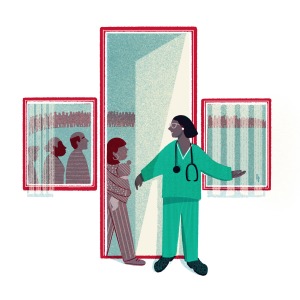
Making Health Care Affordable and Equitable
Dr. Cheryl Pegus (M.D. ’88) is a cardiologist working in health-care businesses on new products to meet consumer needs, enhance health equity and improve health outcomes.